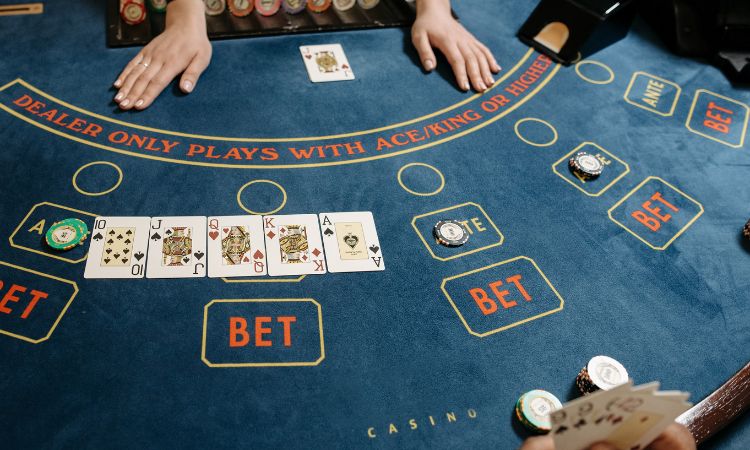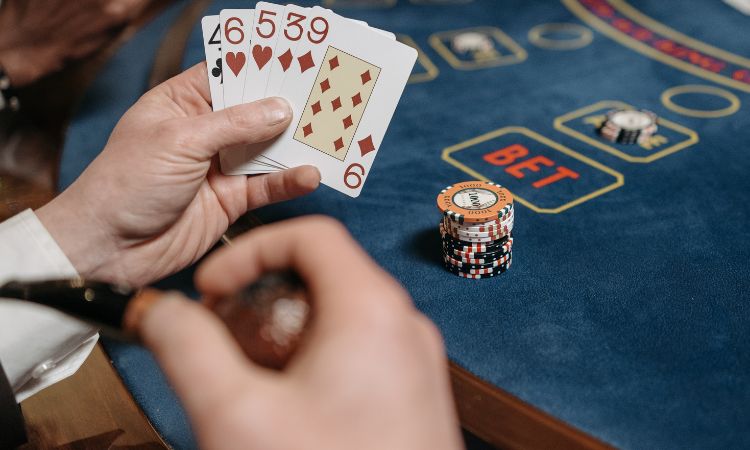Gambling is a popular form of entertainment, but if left unchecked, it can have serious financial, psychological, and social consequences. Knowing when to stop and how to set personal betting limits will not only help you protect your wallet but also maintain a balanced life. This article from In 999 will guide you on how to recognize when to stop and build a responsible betting strategy.
1. Why is it necessary to set a personal betting limit?
Setting a personal betting limit is an important step to protect yourself from potential risks when participating in this activity. Here are the specific reasons:
Maintain financial stability: Uncontrolled betting can easily lead to overspending, affecting personal and family life.
Protect mental health: Continuous losses can lead to anxiety, depression, and even impulsive or self-destructive behavior.
Maintain social relationships: Many people lose the trust of relatives and friends because they are absorbed in endlessly pursuing betting.

2. Signs You Should Stop Gambling
It’s not easy to tell if you’re getting too deep into gambling, but if you have one or more of the following signs, it’s time to stop:
Always thinking about gambling, even when you’re not playing
Borrowing money to continue gambling
Regularly going over your original budget
Lying to loved ones about the amount of money you’ve spent on gambling
Losing interest in daily activities
Feeling stressed, having trouble sleeping or being irritable for no reason
These signs are clear warnings that you need to review your gambling habits.

3. Types of personal betting limits to apply
There are many ways to set betting limits depending on your goals and personal financial capabilities. Here are the common types of limits:
3.1. Daily/Weekly/Monthly Betting Limits
Define the maximum budget you can spend on betting in a specific period of time and do not exceed it regardless of whether you win or lose.
3.2. Time Limit:
Set a specific time of day or week that you are allowed to bet. This will help you avoid spending too much time on this activity.
3.3. Limit the number of times you access your betting account:
Limit the number of logins per day or per week to avoid the temptation to come back too often.
3.4. Loss Limit:
Set a maximum loss you can accept in a single session. When you reach this number, you must stop immediately.
4. How to set an effective betting limit
4.1. Assess your personal financial situation:
Before betting, you need to know clearly how much money you can spend on this entertainment activity without affecting other necessary expenses such as living, studying, investing, etc.
4.2. Record detailed betting activities:
Save information about the amount of money bet, playing time and results to help you have an overview and make timely adjustments.
4.3. Use betting management tools:
Many reputable bookmakers provide the feature of setting personal limits directly on the platform. Take advantage of it to better control your behavior.
4.4. Ask relatives for support:
Inform relatives or friends about your betting goals and limits so they can help you monitor and remind you when necessary.
4.5. Proactively lock your account:
If you find it difficult to control your behavior, you can use the option to temporarily or permanently lock your account on betting sites.

5. When should you stop gambling completely?
Gambling should only continue when you have control over your behavior and emotions. If you fall into one of the following situations, consider stopping gambling permanently:
Have been or are in debt because of gambling
Negatively affecting work, study or relationships
Can’t stop even though you know you’re going too far
Feel guilty, disappointed in yourself after each game
Stopping is not a failure but a brave choice to protect a healthier life.
6. Seek support if necessary
For many people, stopping gambling is not easy. If you can’t control yourself, seek professional help:
Get psychological advice from a professional
Join a support group like Gamblers Anonymous
Use online counseling services from non-profit organizations
The journey to overcoming excessive gambling takes time and companionship. Don’t be afraid to seek help.
Gambling is only truly a healthy form of entertainment when you know how to control it and set appropriate limits. Knowing when to stop and setting personal betting limits not only helps you protect your finances and health but also maintains a balance in your life. Be a smart player – play responsibly, stop at the right time and live positively.
See more:
